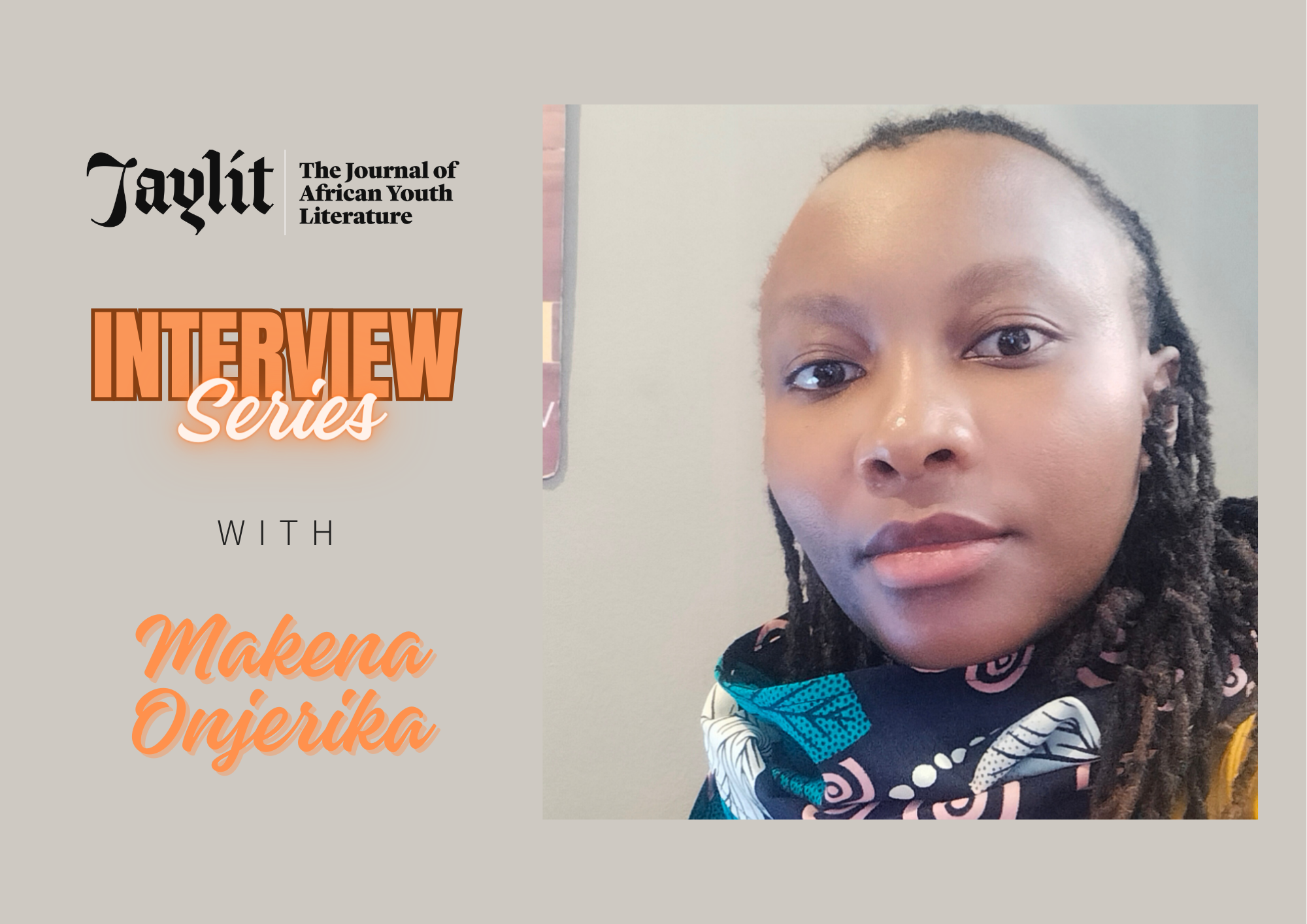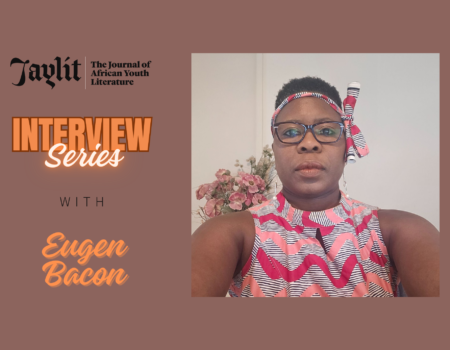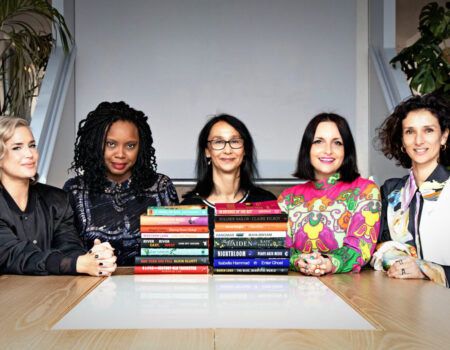Makena Onjerika was awarded the 2018 Caine Prize for African Writing. She was shortlisted for the 2020 Miles Morland Writing Scholarship, the 2020 Bristol Prize, and the 2022 NOMMO short story award. She was a Best of the Net Nominee in 2020. Her work has appeared on Granta.com and in The Deadlands, The Fireside Magazine, Black Warrior Review, Wasafari, Johannesburg Review of Books, Adroit Journal, Waxwing among others. She lives in Nairobi with her son and works as a qualitative market researcher while teaching online fiction classes.
In this interview, Makena sits down with Ibrahim Babátúndé Ibrahim to talk about writing, ADHD, her cancelled anthology project, the Nairobi Writing Academy, the state of funding for African literature, and much more. Come along with us!
~
IBRAHIM
Thank you for agreeing to speak with me, Makena. I’m curious to know. What does writing—or literature as a whole—mean to you?
MAKENA
Writing is something I am reasonably good at. I can’t tell you why I do it, because it’s terribly hard and depression-inducing. I would say it’s just something I do, like breathing. Or perhaps I like the challenge involved, and I am addicted to the dopamine hit when a story finally gets published in a top-tier magazine. Yes, that’s probably it. Literature, on the other hand, is life. Reading teaches me how to do life. I’m an ADHDer. Without fiction, I would probably not understand how other people function. I am Bryon in Ian McEwan’s “Atonement”, both mystified by how I move my own finger and scandalised by the fact that other people exist outside my own story. Literature keeps me human. Think about it. The thing that makes us conscious and therefore human is our ability to tell stories, to imagine what is not. Telling ourselves stories is how we learn, how we change reality. Literature is also the great escape. A journey through time and space and into the multiverse. Literature is infinite possibilities.
IBRAHIM
So, what is your process of crafting a story? Are you a plotter or a pantser?
MAKENA
I almost always begin with a single scene that stands very clearly in my mind. Once that one is written, outlining helps me take stock of what needs to happen in the story. If a new scene comes to mind, I write it next and then get back to outlining. This works well for me for the short story. I have not written a novel yet. I have not managed to trick my mind into persevering through even a first draft. Neither pantsing nor plotting works in this case.
IBRAHIM
I feel that more people have come to appreciate the short story in recent years, but it still doesn’t get the respect that the almighty novel does. What do you make of this?
MAKENA
I think I only appreciate the short story because I have been formally taught how to read them. The short story is a strange creature that is often all about theme. It’s loaded with subtext and is a bit of a headache to decipher sometimes. Novels are perhaps easier on the reader.
IBRAHIM
So, that question is actually born from the admiration I have for your fantastic short story, ‘Fanta Blackcurrant’. Unsurprisingly, it won the Caine Prize in 2018, and from a very strong shortlist too. Can you tell us a little about that story?
MAKENA
We no longer talk about Fanta Blackcurrant, here. All there is to say about it, I have said (laughs).
IBRAHIM
(Joins laugh) Okay let’s move on from it to your writing generally. You’re widely published around the world with a long list of honours. This says a lot about your writing in general. How would you define or describe it?
MAKENA
I would not call it a long list of honours. I have 12 stories or so published now. Hardly anything. Which is to say that I have high expectations of myself and I am nowhere near meeting them despite what others may think. And if I must describe my writing I would be as follows:
- Sometimes speculative, other times realist
- Timid
- Tumultuous
- Still basic
- Desperate
- Apparently (and surprisingly) liked by people who are not me
- Focused on the mundane and minutiae (where the juicy’s at)
- Focused on women and girls
- A thing that is still seeking definition
IBRAHIM
So are you working on anything at the moment? Perhaps collecting your stories into a body of work?
MAKENA
If you’ve read my published works, you’ll note that about six revolve around the same set of characters. I am working on a 21-story, novel-in-short-stories. It’s titled either, In the Forest of Talking Animals or House of Feral Dreams. I can’t decide. At last count 15 were done, and I had 6 more to finish drafting. I don’t trust that count though. I’ve been on the book since 2018 and every year I say this is the year and then it turns out to be so not the year. I work a full-time job and write under my covers just before passing out at the end of the day (yes, I am lazy). I am hardly consistent. Anyway, 2026 looks like a good year to have my first book published.
IBRAHIM
The submission call for your Kenyan anthology closed a few weeks ago, but we’re told that you’ve cancelled the project. What’s the reason for this?
MAKENA
I was very excited about Yajayo. My vision was to give the world a taste of Kenyan speculative imagination. In fact, I have been thinking about it since 2021. But it’s clear to me now that I have neither the time nor the money to make it happen. As an ADHDer I often take on more than I can handle and later have to reassess, apologise, and refocus my energies on what I can actually do. Instead of continuously procrastinating on working on the stories, I thought it best to release them back to their authors and advise on other venues where they can seek publication.
IBRAHIM
Your first anthologies were Digital Bedbugs (2019) and Equipose (2020), through the Nairobi Writing Academy, your brainchild. Tell us more about the academy, the work it does, and your motivation for establishing it.
MAKENA
My goal in starting the academy was to provide myself and other experienced writers with a source of income while offering African writers access to a version of my own creative writing training. I had access to about seven years of fiction craft training. Hardly anyone living on the continent outside South Africa has prolonged access to comparable creative writing training. The academy was my way of giving back and especially affecting Kenyan literary production. The academy does not exist anymore. That is, I no longer collaborate with writing practitioners in different creative writing practices to offer classes. I send most people who ask me about classes to Lolwe classes. They are well organised and affordable. I only teach two private classes per year online: Introduction to Short Story Writing, a 10-week class, and Advanced Short Story Editing, a 12-week class. They are long classes. I am even tempted to make them longer. I am committed to giving my participants in-depth training in the fundamentals. Each class is about finding out just how much we don’t know about fiction so that we can spend the rest of our lives learning. The core target for these classes is African writers, but they are open to everyone anywhere in the world with an internet connection.
IBRAHIM
We’re sorry to hear about the academy not existing anymore, and about the cancelation of your Kenyan anthology. Are you nursing any plans to bring either back sometime later?
MAKENA
No. The academy is unlikely to ever come back. It ended because I ran out of steam. Lolwe is doing good work. I feel no need to duplicate this effort beyond the two classes I can teach comfortably each year. The anthology is a maybe. I do want to see more Kenyan speculative fiction in the world.
IBRAHIM
Lolwe truly is (nods). But what are your thoughts on what’s obtainable on the African continent for writers and literary institutions in terms of funding and structured support, especially with your experience regarding the academy and writing generally.
MAKENA
I never sought funding for the academy. I was looking to build a self-sustaining institution. Ideally, experienced writers would offer their knowledge at a price new writers would be willing to pay. Any scholarships I offered were out of my own pocket or from well wishers. I don’t believe that we can be truly free to write work that is true to Africa if we are dependent on non-African funding (although that doesn’t mean I won’t take those chums). Besides, many of those funders don’t see the point of funding Africans. And African governments will not fund artists because artists raise the consciousness of the people and make them less docile and harder to manipulate. Perhaps private companies/institutions will give us funding, but they have tech startups to fund first. So, I think we will keep doing what we are doing, for the foreseeable future—setting up and running writing initiatives based on our interests and keeping them going for a time, making some impact, then shutting down when we tire. The people we impact will build their own initiatives. On and on. One person building on another’s effort. It’s not ideal. But it’s our reality for now. Eventually, we will create our own endowment for African writing.
IBRAHIM
It’s obvious that your passion for all things literature is deeply rooted. Are there other areas of interest that you actively pursue?
MAKENA
ADHD and hobbies don’t really mix. I may do something for a week or a month, then my interest fizzles out. I had a hiking and camping phase (expensive gear and all). A colouring phase. A power walking phase. But I am a massive fan of k-dramas. Yes, the romcom shows from South Korea. If you need recommendations, hit me up on my Twitter @onjerika. I am more than happy to draw one more person into a lifelong, inescapable addiction (laughs). But seriously, don’t start watching that stuff. DO NOT!
IBRAHIM
So, in an alternate universe where you’re not a writer, what do you reckon you would be?
MAKENA
Miserable. About as miserable as I am being a writer in this universe (Sighs).
IBRAHIM
What is something you would tell a young you who is just starting out as a writer?
MAKENA
It takes 10000 hours of practice and determined improvement. Very few writers arrive on the scene fully formed. Most have a hidden first novel or three that they are deeply embarrassed about. You’ll start and stop. Learn how to read like a writer because everything you need to learn is in someone’s published story already. It’s a lonely business; make friends who write better than you and share your work with them as often as they share theirs. Submit, submit, submit. Expect 100 rejections for every acceptance. Rejection is not personal. Sometimes it means the story needs work. Sometimes it means the story is not a good fit for where you send it to. Assume it’s a little bit of both. Look for what you can improve then submit again.
IBRAHIM
Thanks again for granting this interview. It’s been both exciting and insightful talking to you.




![[Featured Post] My Beautiful LOATAD Experience](https://jaylit.com/wp-content/uploads/2025/05/First-cohort-of-the-2025-LOATAD-Black-Atlantic-Residency-450x350.jpg)

